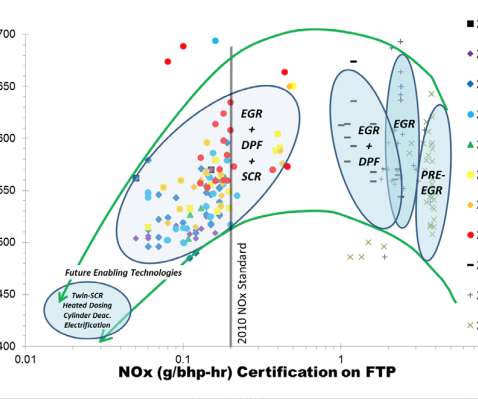HyBoost concept achieving close to Prius-level CO2 emissions; aggressive downsizing with advanced boosting and micro-hybrid system
Green Car Congress
NOVEMBER 1, 2011
version of its vehicle (a 2009 Ford Focus) but with fuel economy and CO 2 emissions approaching those of a Prius, according to David Boggs, Ricardo Technical Specialist, Engines, in a presentation at the recent 2011 Directions in Engine-Efficiency and Emissions Research Conference (DEER) hosted by the Department of Energy in Detroit.




































Let's personalize your content